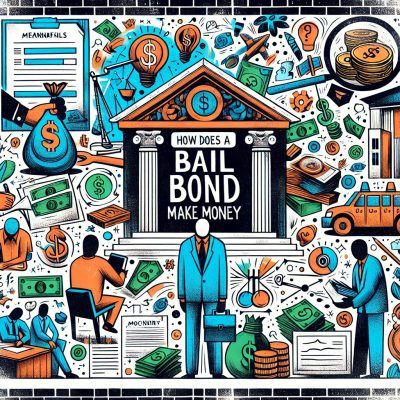Understanding Bail Bonds: What They Are and How They Work

Discover what bail bonds are, how they work, and why they’re important. Learn the ins and outs of bail bonds in this easy-to-understand guide.
Introduction
Have you ever heard someone say, "I can’t believe they got bailed out"? If you’re curious about what that means, you’re in the right place! Bail bonds are an essential part of our legal system. They help people get out of jail while they wait for their trial. But how do they work, and why are they so important? Let’s break it down!
What Are Bail Bonds?
So, what exactly is a bail bond? Simply put, a bail bond is a financial agreement. When someone is arrested, they may be given the option to pay bail—a set amount of money that allows them to be released from jail until their court date. If they can’t afford the bail amount, they can turn to a bail bond company.
Here’s how it works:
- The Arrest: A person gets arrested and taken to jail.
- Bail is Set: A judge decides how much bail the person must pay.
- Bail Bondsman: If the bail is too high, the person can contact a bail bondsman.
- Payment: The bondsman charges a fee, usually around 10% of the bail amount.
- Release: The bondsman pays the full bail to the court, allowing the person to be released.
Why Do People Use Bail Bonds?
You might be wondering, "Why not just pay the bail?" Great question! Here are a few reasons:
- Affordability: Bail amounts can be super high, sometimes thousands of dollars. Not everyone has that kind of cash just lying around.
- Quick Release: Getting a bail bond can speed up the process of getting released from jail, which is crucial for many people.
- Support: Some families may not have enough money for bail, so they turn to bondsmen who can help.
The Role of a Bail Bondsman
Bail bondsmen are like superheroes in the bail world! They help people who can’t afford to pay bail directly. Here’s what they do:
- Evaluate: They check the details of the case and the person’s background.
- Set Fees: They charge a non-refundable fee, typically around 10% of the bail amount.
- Provide Support: They guide the person through the process and answer any questions.
What Happens After Getting a Bail Bond?
Once someone is out on bail, they need to keep a few things in mind:
- Show Up for Court: It’s super important to attend all scheduled court dates. If they don’t, it can lead to serious trouble.
- Stay in Touch: The bail bondsman may want regular updates or check-ins.
- Follow the Law: Staying out of trouble is crucial! Any new arrests could lead to losing the bail bond.
Frequently Asked Questions (FAQs)
1. Can I get my bail money back?No, the fee you pay to the bail bondsman is non-refundable, even if you show up for court.
2. What happens if I don’t go to court?If you miss your court date, the court can issue a warrant for your arrest, and you may lose the bail money.
3. Are bail bonds available for any crime?Not all crimes allow for bail. Some serious offenses may require a person to stay in jail until their trial.
Conclusion
Bail bonds play a vital role in the justice system, helping people get out of jail while waiting for their court dates. Whether it’s for financial reasons or the need for a quick release, bail bondsmen provide a valuable service. So next time you hear about someone getting bailed out, you’ll know exactly what’s going on!
Understanding how bail bonds work helps us appreciate the balance between fairness and the legal process. Whether you’re in a tough spot or just curious, knowing about bail bonds can make a difference!

